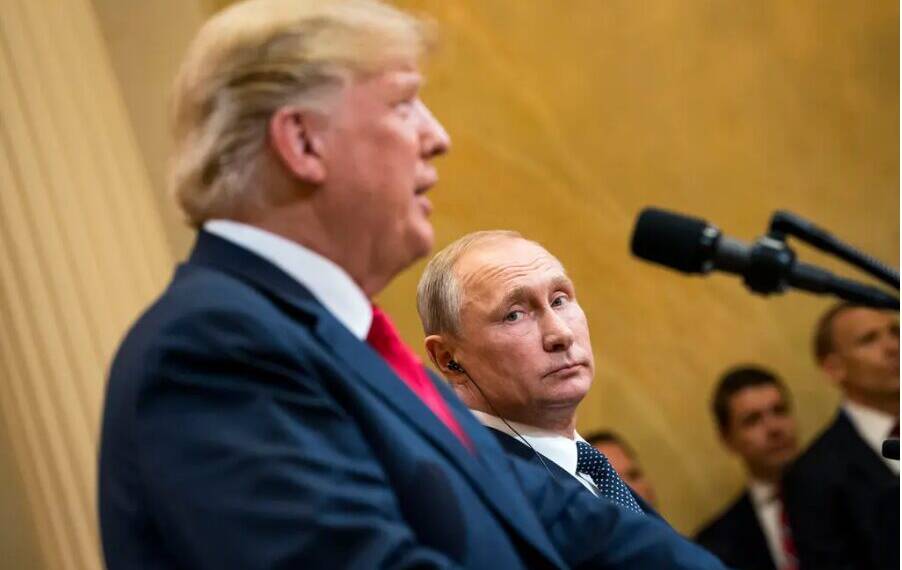Following the victory of Donald Trump in the US presidential election, a new chapter in US-Russia ties appears to be unfolding. Russian leader Vladimir Putin openly commended Trump on his win and praised his “manly” response to an attempted assassination. Putin’s supportive comments show that he’s willing to re-establish contact with the US through Trump, and he hinted that he’s open to discussing key issues like the ongoing Russia-Ukraine war.
This renewed connection between Trump and Putin is concerning for Europe, especially given Trump’s remarks on the Ukraine conflict. Throughout his campaign, Trump promised to end the war in Ukraine quickly, even claiming he could achieve peace within a day. He also hinted at possibly reducing U.S. support for Ukraine, a move that has raised significant fears in Kyiv. Ukraine President Volodymyr Zelensky responded by saying that a quick deal, as Trump envisions, could mean serious losses for Ukraine. Essentially, Zelensky is worried that Trump’s idea of “peace” might come at a cost to Ukraine’s sovereignty.
The ties between Trump and Putin have been a source of tension and controversy, both within the U.S. and internationally. Trump has often praised Putin, once even calling him a “genius” after Russia’s invasion of Ukraine. Putin, too, has shown admiration for Trump, especially after witnessing how Trump responded to the assassination attempt in July. Putin praised Trump’s bravery, calling his reaction “courageous” and “manly,” in a tone not often seen from him when discussing Western leaders.
Putin’s openness to talking with Trump comes amid a period of uncertainty about how the U.S. will handle its involvement in the Ukraine crisis. After Trump’s victory, the Kremlin initially kept its distance, with a spokesperson saying Putin had no plans to contact the president-elect of what he described as an “unfriendly country” involved in a war against Russia. However, Putin’s recent comments at the Valdai Club meeting in Sochi suggest a shift. He now seems eager to see if Trump’s foreign policy goals could align with Russian interests, particularly in Ukraine.
What Putin finds hopeful about Trump’s promises is his willingness to restore U.S.-Russia ties and work on ending the Ukraine war. Putin noted that Trump’s words “deserve attention,” though he was cautious, accepting that some statements made during campaigns can be exaggerated or change once the president is in office. Despite Putin’s interest, he was clear that Russia is not interested in negotiating on Ukraine’s terms but is instead firm about discussing terms based on the “realities on the ground” today. For Ukraine and its European allies, this is troubling because “realities on the ground” likely refer to Russian control over parts of Ukraine, which they would expect to keep in any peace deal.
For Europe, the prospect of Trump aligning with Putin on a fast-track solution for Ukraine brings serious concerns. European nations, especially those close to Russia’s borders, have been vocal about supporting Ukraine and see Russia’s invasion as a major threat to regional stability. Europe has also been critical of any actions that might weaken the Western alliance against Russian aggression, and Trump’s potential reduction of U.S. support for Ukraine could shift the balance of power. Europe depends on the U.S. for strong support in confronting Russia, and if Trump were to scale back American aid to Ukraine, it would place greater pressure on European nations.
And that is what Putin wants. This is where Trump’s and Putin’s interests align.
In summary, the rekindling of Trump and Putin’s bonhomie will have serious consequences for Europe. With Putin showing eagerness to engage, Europe is watching closely, as any shift in U.S. support would mean the end of the world for EU.







